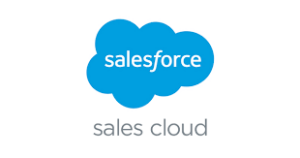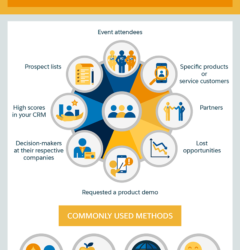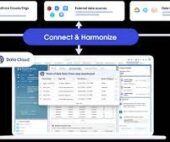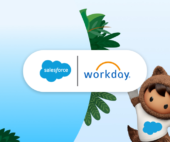Navigate opportunities through the sales pipeline while precisely monitoring the products or services you’re selling and their respective values. Turn Opportunities Into Deals With Salesforce Sales Cloud.
Efficiently manage potential deals by utilizing Salesforce opportunities. Opportunities denote ongoing deals and maintain crucial information about them, such as the associated accounts, key players involved, and the potential sales amounts. When a lead is converted, an opportunity is automatically generated if your Salesforce admin has configured leads in your Salesforce org. Additionally, opportunities can be directly created for accounts being actively pursued.
How does Salesforce Sales Cloud enhance your sales process efficiency?
Salesforce Cloud implementation plays a pivotal role in reshaping the processes that facilitate effective customer engagement, fostering improved relationships. Specifically designed for B2B and B2C contexts, Sales Cloud supports marketing, sales, and customer support initiatives.
What distinguishes leads from opportunities in Salesforce?
Leads encompass any potential individual or business within your CRM that is not yet qualified. In contrast, opportunities represent qualified leads with the potential to finalize a purchase or sale.
What advantages does Salesforce Sales Cloud offer?
Sales Cloud provides integrated collaboration solutions, empowering teams to act swiftly, access relevant information effortlessly, collaborate on projects, share competitive insights, and more.
8 strategies to enhance sales productivity with Salesforce:
- Embrace Sales Tools.
- Track & Measure Sales Activities.
- Establish A Schedule & Routine.
- Create Daily Goals.
- Automate Time-Consuming Admin Work.
- Prospect Smarter.
- Assign Sales Territories Strategically.
- Visualize Customers on a Map.
Primary roles when using Salesforce Sales Cloud:
Salesforce Sales Cloud implementation services assist sales managers in forecasting and planning sales revenue through advanced forecasting features. The platform aids in setting sales targets, monitoring progress, and adjusting sales strategies as necessary.
Why do salespeople use Salesforce?
Salesforce, as the leading CRM tool, empowers sales agents to focus more on client needs and less on backend management. It liberates time for the sales team, enabling them to concentrate on impactful activities.
Tectonic is please to announce our Sales Cloud Implementation Solutions.













